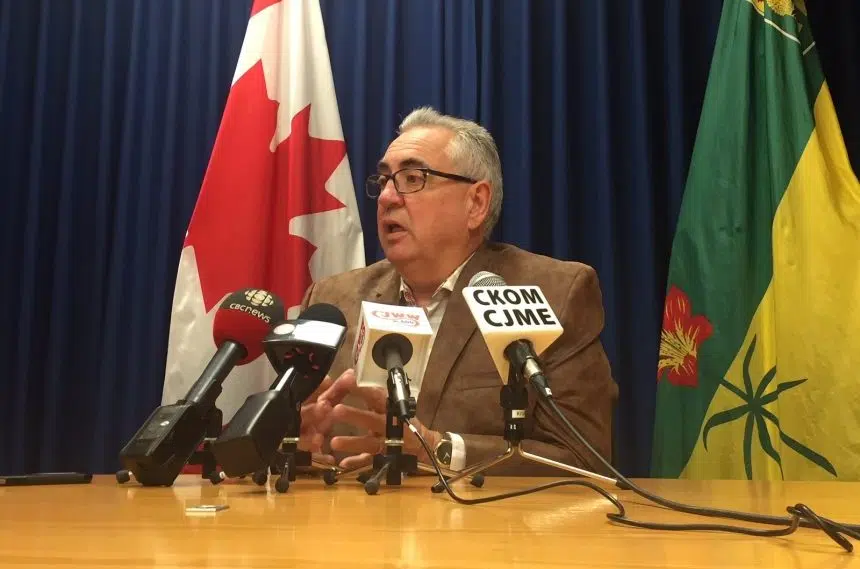Saskatchewan is set to dole out even tougher penalties for drug-impaired drivers and those caught under the influence while transporting children.
As of Sept. 1, zero tolerance for drug impairment will apply to all drivers – meaning people should not get behind the wheel with any level of impairing drugs in their system detectable by a federally-approved screening device, or a standardized field sobriety test.
“Zero tolerance is important right now. We’re talking about safety on the highways,” said SGI Minister Joe Hargrave in Saskatoon Thursday.
“We want people to get the message that driving impaired is not acceptable.”
The minister explained that the standard measure for enforcement would be the field sobriety test. If the person fails that, then they would see a drug recognition expert.
“(Police) have to actually suspect that the person is impaired. And that impairment could be drugs or alcohol, legal drugs or illegal drugs,” Hargrave said.
Penalties include an immediate licence suspension, the vehicle being seized for up to 60 days and – if convicted – a licence suspension for up to five years.
Those caught driving impaired with passengers under 16 could have their vehicle seized for up to 60 days with a licence suspension of up to 120 days. New drivers stand to have licence suspensions up to 18 months.
The tougher penalties will also apply to anyone charged under three new federal drug-impaired driving laws.
Hargrave noted the province is not expecting the number of impaired drivers to go down anytime soon due to the increased push for enforcement, which started a year ago.
“We were paying more for overtime; we were encouraging stronger enforcement by municipal (police) and the RCMP,” he said.
“We’re optimistic, with the new drug-testing machines that are coming, combined with the breathalysers; we will get more impaired drivers.”
Hargrave noted the province is hoping to have the saliva screening roadside tests, recently approved by the federal government, soon – with some being in use before the Oct. 17 legalization date for recreational marijuana.
As for how many of the saliva test devices would be needed in Saskatchewan, Hargrave said he doesn’t have those figures yet. The minister added the province is working with RCMP and municipal services to determine the need.
“We’re first trying to get a handle on what they think would be necessary and the number of machines we could acquire in the short-term,” he said.
Hargrave added the province will continue to closely track numbers for drivers impaired by both drugs and alcohol.
“A lot of the accidents, the injuries, the deaths were actually (caused by) a combination of both,” Hargrave said, referring to previous incidents on Saskatchewan roads.
Drivers are also reminded that it doesn’t matter if a drug is legal or not when it comes to impaired driving. Hargrave used the example of prescription and over-the-counter drugs to illustrate the point.
“They’re warned, by the doctor, not to drive while taking this drug, it’s dangerous – and yet they do,” Hargrave said.
“Those people will still be put through a field sobriety test. They’ll still be put through a drug recognition expert test and they will be charged.”
The province is set to release more public awareness campaigns on impaired driving and ramp up education in schools.











